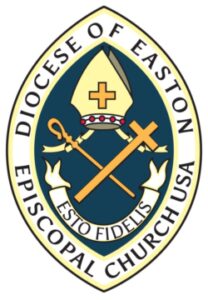Bishop’s Advent Reflection
“Conflict and Brokenness … not the end of the Story…”
For St. Paul, writing to the early Christians, this was profoundly important. Writing to the Colossian disciples, he weaves a stunning poem into his letter (Colossians 1:15-20):
“He is the image of the invisible God, the firstborn of all creation; for in him all things in heaven and on earth were created, things visible and invisible, whether thrones or dominions or rulers or powers—all things have been created through him and for him. He himself is before all things, and in him all things hold together. He is the head of the body, the church; he is the beginning, the firstborn from the dead, so that he might come to have first place in everything. For in him all the fullness of God was pleased to dwell, and through him God was pleased to reconcile to himself all things, whether on earth or in heaven, by making peace through the blood of his cross.”
It’s a beautiful poem like no other in the New Testament about how incomparable Jesus is. He is the visible likeness of the invisible God, showing us who God is and what God is like, because God lived fully in him (v.19). It’s a poem about what Jesus achieved in his life, death and resurrection, ‘reconciling all things to himself, making peace through the blood of his cross’ (v.20). These were truths that the Colossian Christians may well have known, yet they always needed to be reminded of them.
The often hidden, deeper truth that the poem surprises us with (though perhaps it shouldn’t) is that Jesus Christ was not some latecomer in cosmic history. No, ‘in him all things were created… things seen and unseen… created through him and for him’. Echoing words that other Jewish writers had used to describe the Wisdom of God, Paul places Jesus at the heart of God’s original creative work.
We cannot and must not deny the pain and disillusionment that we are experiencing now, as individuals, communities, and nations – whether in the fracture of personal relationships or bigger global crises. But whatever has gone wrong with the world doesn’t mean that the world itself was evil in the beginning, or that the goodness that we enjoy every day is an illusion. When we discover brokenness in the world, we should not meet it with resigned complacency, as if the world has only ever been broken, but with hope…
The God Jesus reveals to us is only ever good, and what he created was good in the beginning. The one through whom the world was made is the same one through whom and to whom it has been reconciled.
Advent which means ‘to come’ calls us to be attentive to the seeds of reconciliation. We are to watch carefully for signs of where God is already at work in the broken places of the world, and where people of goodwill begin to respond to the call to join in with the God who is always ready to get God’s hands dirty. And as we watch and nurture those seeds, within ourselves and those around us, the call is for us, too, to join in, take risks, enter the reality we seek to see transformed, and get our hands dirty. Reconciliation is not yet fully complete, and it is that fully restored creation which we long and pray for in Advent. Let us not deny the pain, but also not be overwhelmed by it this Advent. Rooted in God’s reconciling love which was there in the beginning, and which is our destination, would the Holy Spirit equip us to join in with God’s reconciling work in the world. Every Advent registers the sense of a new beginning and recalls the spirit of Revelation 22:20, “Surely I am coming soon.” “Amen. Come Lord Jesus!”
Likewise, the season of Advent is an opportunity for us to remind ourselves that the conflicts and brokenness we experience are not the end of the story. Our stories are held within the bigger, deeper truth of God’s reconciling love.
A reflective and holy Advent to everyone!

